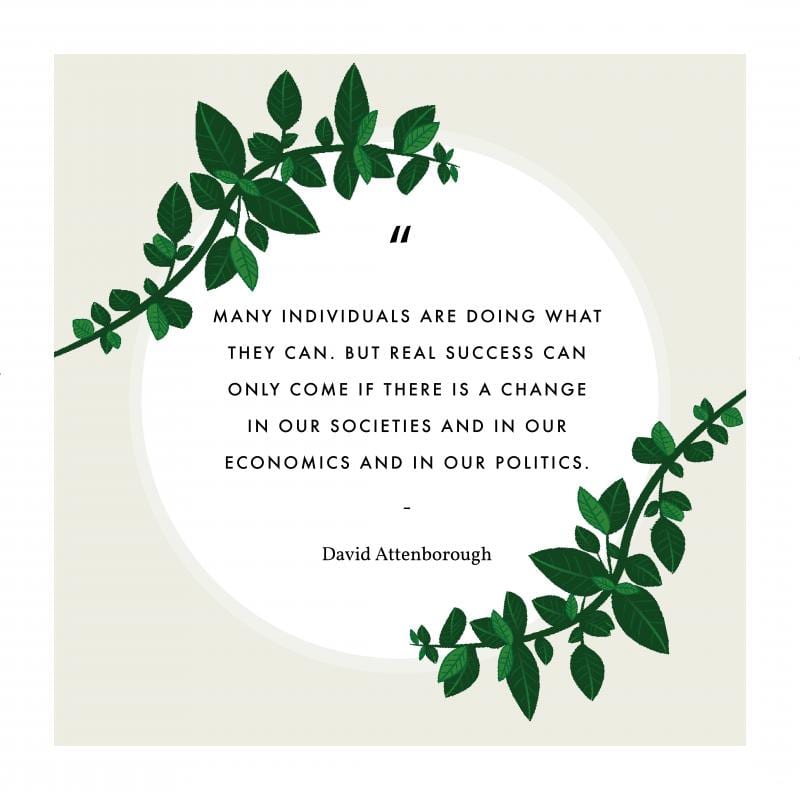Say NO to VEGANUARY, and YES to REGENUARY.

There is a clear reason why environmental scientists and those involved in animal famring seem to always be at odds with one another. It's simple, it's because one is driven by science, and evidence, and the other by tradition, heritage and financial motivations.
'Avocados and nuts are worse for the environment than cow and pig flesh'.
'Vegans are causing deforestation in South America through consuming soy'.
'Local grass-fed farming is sustainable'.
All 3 of these claims are constantly and consistently refuted by the scientific literature, and what is being consistently shown is that plant based diets are the most sustainable diet.
We are going to go over the same claims Earthlinged did on Instagram. We want to remind you these studies only scratch the surface of the ever-growing abundance of scientific literature that is showing us why we need to reduce and transition away from animal farming.
''Sadly, simply swapping out beef and pork for nuts and avocados is worse for the environment than simply choosing to eat well raised animals.''
Per kg avocados generate a quarter of the emissions of pork, and 20th of beef.
Almonds generate nearly a quarter of the emissions of pop and 17th of beef.
also, you can be vegan and not eat avocados from South America and almonds from California.
It's also not just vegans eating these products, either.
2. CLAIM
Vegan food is bad for the environment because it's heavily imported and uses fossil fuels. Buy local animals products.
2. FACT
A peer reviewed and published meta analysis of 1,530 studies showed that a plant based diet is the most sustainable diet, with even the lowest impact beef being responsibile for six times more greenhouse gases and 36 times more land compared to plant proteins, such as peas.
The same study also showed how local meat is not more sustainable, as the issue isn't the transportation, it's the farming itself. In fact, the transport emissions for beed are about 0.5% of the total and for lamb they are 2%.
Another study, using data from the UN's FAO, showed that in the EU only 6% of emissions from agriculture came from food transport. In total meat, dairy and eggs caused 83% of agricultural emissions, whilst plant foods caused only 17%.
3. CLAIM
You can help the planet by buying animal products from systems of regenerative animal agriculture.
3. FACT
A meta-analysis of LCA studies from the highly renowned GEMIS database concluded that organic meat is not better for the environment.
With even the lowest impact meat, organic pork, being responsible for eight times more climate costs than the highest impact plants.
In the famous Drawdown report, plant rich diets were shown to be four times more effective at sequestering carbon compared to managed grazing systems.
An analysis of 313 different global food systems concluded that the diets that produced the highest GHG emissions were those with a high meat demand, especially if focused on ruminate meat and milk, and those that produced the lowest emissions were the vegan diets.
A two year review study called 'Grazed and Confused', looked at over 300 sources and analysed the claims made by proponents of regenerative animal agriculture, revealed that the sequestering of carbon from grazing animals is time-limited, reversible and in aggregate small and substantially outweighed by the greenhouse gas emissions these grazing animals generate.
4. CLAIM
''Soya has reviewed fierce criticism for its role in the deforestation of South America''
Vegans are destroying the planet with soya.
4. FACT
75-80% of the worlds' soybean crop is for farmed animals and only 6% is grown directly for humans. As much as 96% of the soy produced in the Amazon region is for farmed animals. The issue of soy and deforestation is because of animal farming.
Veganuary has not only become an important part of the cultural zeitgeist, but also continues to smash to sign up records every single year. We are worried it'll never become Regenuary.



